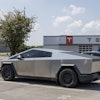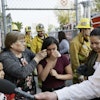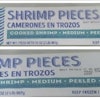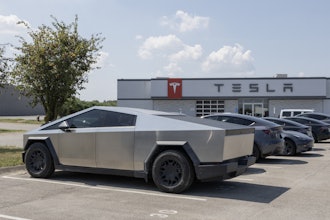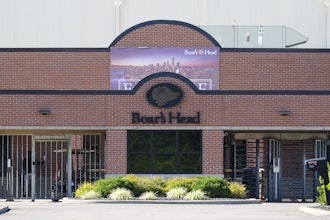NEW ORLEANS (AP) — A BP executive will testify for a second day Wednesday at a trial over the worst oil spill in the U.S., speaking before a judge who will decide whether the London-based oil giant and other companies acted with gross negligence for the 2010 disaster in the Gulf of Mexico.
BP executive Lamar McKay testified Tuesday that BP and its contractors share responsibility for preventing blowouts like the Macondo well blowout and rig explosion off Louisiana that killed 11 workers on April 20, 2010, spawning the massive spill.
Swiss-based rig owner Transocean Ltd. and cement contractor Halliburton also are defendants. Barring a settlement, the federal trial is intended to identify the cause of the well blowout and decide how much more money BP and the others might have to pay, assigning percentages of blame.
Under the Clean Water Act, a polluter can be forced to pay a minimum of $1,100 per barrel of spilled oil; the fines nearly quadruple to about $4,300 a barrel for companies found grossly negligent, meaning BP could have to pay nearly $18 billion.
BP has already pleaded guilty to manslaughter and other criminal charges and has racked up more than $24 billion in spill-related expenses, including cleanup costs, compensation for businesses and individuals, and $4 billion in criminal penalties.
Two BP rig supervisors have been indicted on manslaughter charges for the workers' deaths and are awaiting a separate trial.
BP and Transocean attorneys on Wednesday are expected to question McKay, who served as president of BP America at the time of the blowout and now is chief executive of the company's Upstream unit.
The third day of the trial also was expected to include video excerpts of deposition testimony by former BP chief Tony Hayward. Excerpts of Hayward's testimony that became public in 2011 show he tried to refute accusations that he sought to prop up BP's falling share price through his subordinates' daily media briefings on the spill.
On Tuesday, a lawyer for businesses and people suing over the disaster pressed McKay to agree with him that BP bore ultimate responsibility for the blowout. But McKay insisted that managing the hazards of deepwater drilling constituted a "team effort."
"I think that's a shared responsibility, to manage the safety and the risk," said McKay. "Sometimes contractors manage that risk. Sometimes we do. Most of the time it's a team effort."
McKay also defended BP's internal probe of the spill, which outlined a series of mistakes by rig workers and faulted decisions by other companies but didn't assign any blame to BP's upper-level management.
One of the biggest issues already emerging at the trial is BP's safety record.
University of California-Berkeley engineering professor Robert Bea testified Tuesday that BP PLC didn't implement a 2-year-old safety management program on the rig that exploded.
"It's a classic failure of management and leadership in BP," said Bea, a former BP consultant who also investigated the 1989 Exxon Valdez spill and New Orleans levee breaches after Hurricane Katrina in 2005.
BP has said its "Operating Management System" was designed to drive a rigorous and systematic approach to safety and risk management. During cross-examination by a BP lawyer, Bea said the company made "significant efforts" to improve safety management as early as 2003.
However, the plaintiffs say BP only implemented its new safety plan at just one of the seven rigs the company owned or leased in the Gulf at the time of the disaster.
BP lawyer Mike Brock said the company allows contractors like Transocean to take the primary responsibility for the safety of rig operations as long as the contractor's safety system is compatible with BP's — an arrangement Brock suggested is a standard industry practice.

